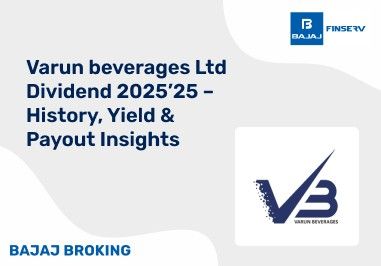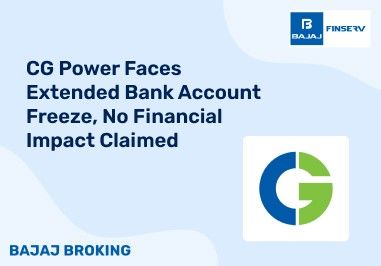BAJAJ BROKING
Retaggio Industries IPO is Open!
Open a Free Demat Account
Trade Now, Pay Later with up to 4x
Track Market Movers Instantly
Insider Tips for Avoiding Mistakes When Opening a Demat Account
A Demat account is a digital account that allows you to hold and trade securities such as shares, bonds, mutual funds, and other investment instruments online. It is an essential tool for investors who want to participate in the Indian stock market and enjoy the benefits of speed, convenience, and security. However, to open a demat account online is not as simple as it may seem. There are many factors to consider and mistakes to avoid when choosing a Demat service provider. This blog shares some insider tips for avoiding common mistakes when opening a Demat account.
Tip 1: Compare Different Brokerages and Depository Participants
One of the first steps to open a demat account online is to select a broker and a depository participant (DP). A broker is an intermediary who facilitates the buying and selling of securities on your behalf, while a DP is an entity that holds your securities in electronic form and provides various services related to your Demat account. There are many brokers and DPs in the market, each offering different features, charges, and customer support. Therefore, it is important to compare different options and choose the one that suits your needs and preferences.
Some of the factors to consider when comparing brokers and DPs are:
- The type of Demat account they offer:
There are two types of Demat accounts - regular Demat accounts and basic services Demat accounts (BSDA). A BSDA is suitable for investors who maintain a low balance of securities and want to save on annual maintenance charges. A regular Demat account is suitable for investors who have a high balance of securities and want to avail more services and features.
- The charges and fees they levy:
Different brokers and DPs charge different fees for opening and maintaining a Demat account, such as account opening charges, annual maintenance charges, transaction charges, dematerialization charges, rematerialization charges, etc. These charges can vary depending on the type of Demat account, the volume of transactions, the value of securities, etc. Therefore, it is advisable to compare the charges and fees of different brokers and DPs and choose the one that offers the best value for money.
- The technology and software they provide:
The technology and software of the broker and the DP play a crucial role in the ease and convenience of trading online. The broker and the DP should provide a user-friendly and technologically advanced platform that allows you to access your Demat account from anywhere, at any time, and on any device. The platform should also offer a range of features, such as access to market data, news, research reports, alerts, etc. Moreover, the platform should be secure and reliable, with minimal downtime and glitches.
- The reputation and customer support they offer:
The reputation and customer support of the broker and the DP are very important as they determine how your investments are handled and how your queries and issues are resolved. You should choose a broker and a DP that have a good track record of performance, compliance, and customer satisfaction. You should also check the reviews and ratings of the broker and the DP on various platforms, such as websites, blogs, forums, social media, etc. Additionally, you should ensure that the broker and the DP offer high-quality customer support, with multiple channels of communication, such as phone, email, chat, etc., and quick and effective resolution of problems.
Also Read: Can NRI Open Demat Account in India?
Tip 2: Read the Terms and Conditions Carefully
Another common mistake that investors make when opening a Demat account is not reading the terms and conditions carefully. The terms and conditions of the Demat account are a legal document that contains the rights and obligations of the investor, the broker, and the DP. It also specifies the charges and fees, the services and features, the risks and liabilities, and the dispute resolution mechanism of the Demat account. Therefore, it is essential to read the terms and conditions carefully and understand them fully before signing the agreement. If you have any doubts or queries, you should clarify them with the broker or the DP before opening the Demat account. You should also keep a copy of the terms and conditions for future reference.
Tip 3: Be Cautious with Power of Attorney
Power of attorney (POA) is a legal document that authorises the broker or the DP to operate your Demat account on your behalf. It is usually required for smooth and hassle-free transactions, such as debiting and crediting of securities, pledging and unpledging of securities, etc. However, POA can also be misused by the broker or the DP to execute unauthorised or fraudulent transactions, such as selling your securities without your consent, transferring your securities to another account, etc. Therefore, you should be cautious with POA and only grant it to a trusted and reputed broker or DP. You should also check the scope and validity of the POA and ensure that it is limited to the necessary transactions and for a specific period. You should also review your Demat account statements regularly and report any discrepancies or irregularities to the broker or the DP immediately.
Tip 4: Keep Your Contact Details and Passwords Updated and Secure
Another tip for avoiding mistakes when opening a Demat account is to keep your contact details and passwords updated and secure. Your contact details, such as your phone number, email address, postal address, etc., are important for receiving notifications, alerts, statements, and other communications from the broker and the DP. Therefore, you should update your contact details whenever there is a change and ensure that they are accurate and active. You should also keep your passwords, such as your login password, transaction password, PIN, etc., secure and confidential. You should not share your passwords with anyone or write them down anywhere. You should also change your passwords frequently and use strong and unique passwords that are hard to guess or crack.
Tip 5: Be Aware of Scams and Fraudulent Activities
The last tip for avoiding mistakes when opening a Demat account is to be aware of scams and fraudulent activities that may target your Demat account. Some of the common scams and fraudulent activities are:
- Phishing:
Phishing is a technique of sending fake emails, messages, or calls that appear to be from the broker or the DP, asking for your personal or financial information, such as your Demat account number, password, PAN, Aadhaar, etc. The scammers then use this information to access your Demat account and steal your securities or money. Therefore, you should never respond to such emails, messages, or calls and never reveal your information to anyone. You should also verify the authenticity of the sender and the content before opening any links or attachments.
- Pump and dump:
Pump and dump is a scheme of artificially inflating the price of a low-value or illiquid stock by spreading false or misleading information, such as news, rumours, tips, etc. The scammers then sell the stock at a high price, making a huge profit, and leaving the investors with worthless shares. Therefore, you should not fall for such schemes and always do your own research before investing in any stock. You should also avoid buying stocks based on unsolicited advice or recommendations.
- Identity theft:
Identity theft is a crime of stealing your identity and using it to open a Demat account or a trading account in your name. The scammers then use this account to execute illegal or fraudulent transactions, such as money laundering, insider trading, etc. The scammers may also use your identity to apply for loans or credit cards, or to make purchases or payments. Therefore, you should protect your identity and your documents, such as your PAN, Aadhaar, etc., and never share them with anyone. You should also monitor your credit reports and your Demat account statements regularly and report any suspicious or unauthorised activities to the broker, the DP, or the authorities.
Conclusion
Opening a Demat account is a crucial step for investing in the Indian stock market. However, it is not a decision that should be taken lightly or hastily. There are many factors to consider and mistakes to avoid when opening a Demat account. By following the tips mentioned above, you can avoid common mistakes and open a Demat account that is best suited for your needs and goals.
Disclaimer: Investments in the securities market are subject to market risk, read all related documents carefully before investing. This content is for educational purposes only. Securities quoted are exemplary and not recommendatory.
For All Disclaimers Click Here: https://bit.ly/3Tcsfuc
Share this article:
Read More Blogs
Our Secure Trading Platforms
Level up your stock market experience: Download the Bajaj Broking App for effortless investing and trading












